10 Years of Making Waves
Written by Arlo Matisz
Before I begin, let me be clear that this is not an impartial historical record. I am currently a radio host at GFN, and for that alone, I cannot be considered impartial. As you’ll later learn, GFN holds a special place in my heart. Rather than push aside feelings for the sake of a bland and neutral account, I will embrace them, though you may expect some degree of romanticizing the tale.
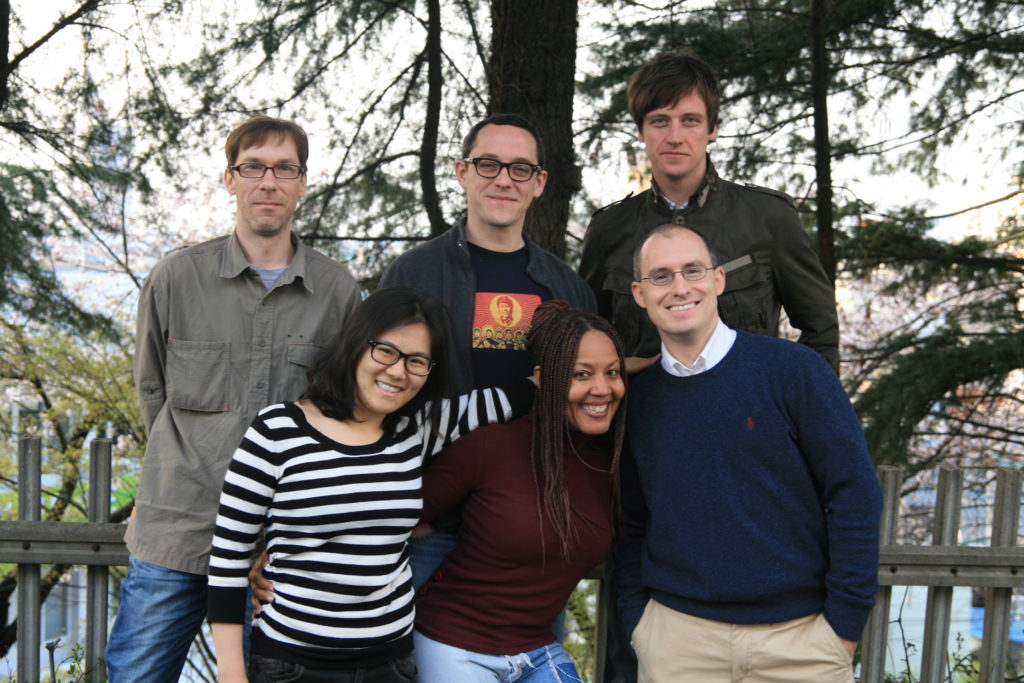
In late 2008 and early 2009, there was some curious gossip flowing through the foreign community. Any word of a job that didn’t have to do with teaching English drew the attention of veteran expat teachers who were looking for something different. A dear friend of mine was among those early explorers who took this chance to sail for a new crew. The new ship was GFN, and it was setting sail on the airwaves of Gwangju and Jeollanamdo. Ten years later, though there are many new faces among the crew, that voyage continues.
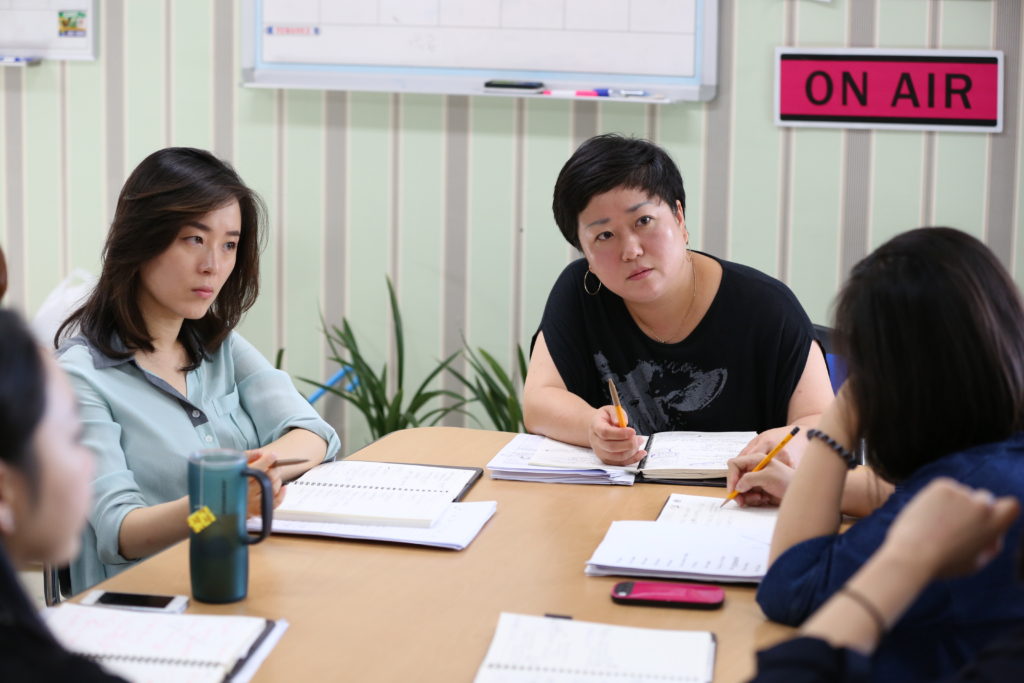
The tides that brought that ship had been pushing for some time. In June of 2008, the Gwangju municipal government announced a plan to establish a Gwangju English language broadcasting system. This mandate was the first in a series of administrative steps that would lead to the launch on April 1, 2009, of GFN, the Gwangju Foreign Language Network. The target market of this public radio station was divided into two distinct segments. The first target market was the foreign population, who would be able to become familiar with national and local issues being presented in a format they could understand more easily, as well as being entertained by the various programs available. The second and larger market was the Korean population interested in English programming, both to improve English ability and to be exposed to various topics outside of the Korean mainstream media already available.
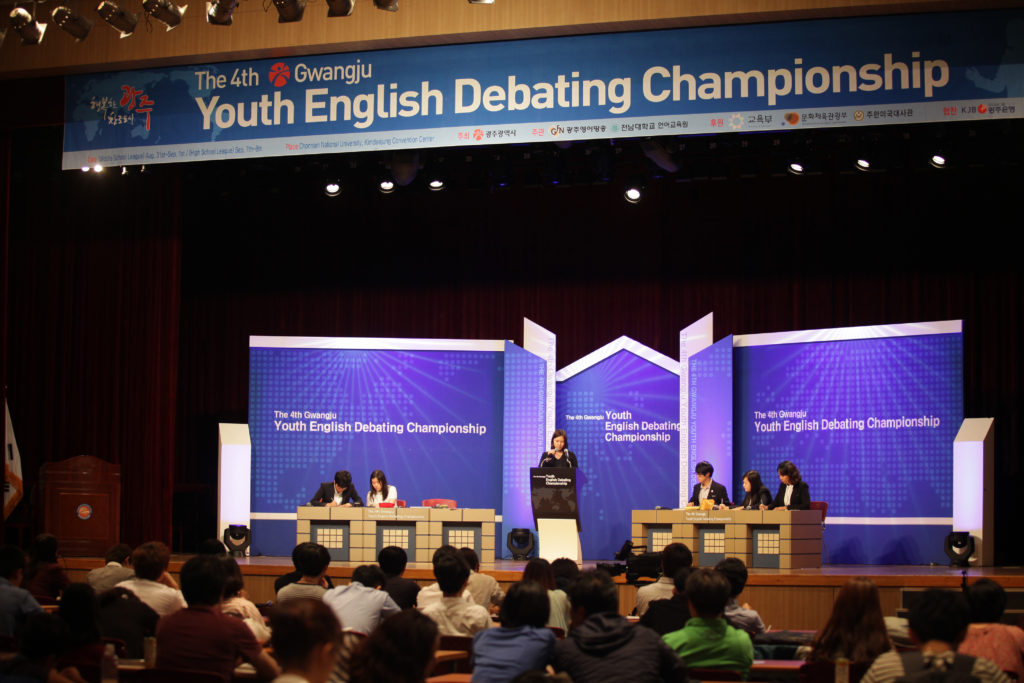
Efforts to meet the needs and preferences of these two markets led to the development of a diverse catalogue of programming that continues to evolve each season. However, it has always been difficult to entirely satisfy both markets. Some of the content for Korean listeners is not of interest to those for whom English is a first language. Resolving this market difference, as well as breaking down the cultural and communication barriers between the Korean producers and the foreign community, are ever-present challenges for the station. Community feedback is crucial for improving the product.
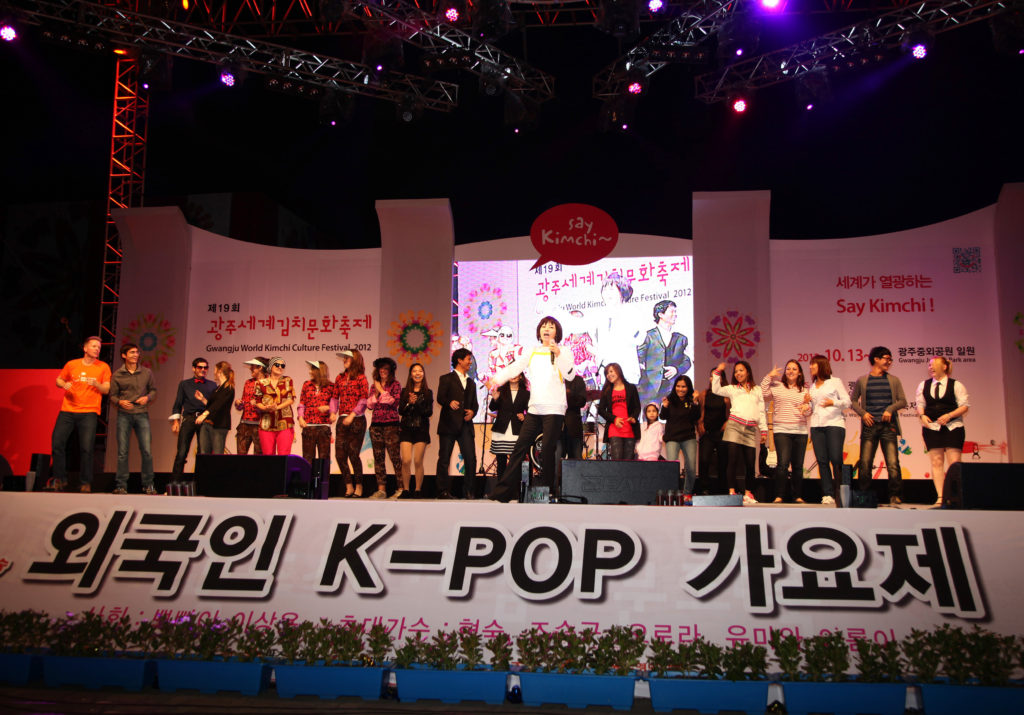
A radio staff consists of various positions, each with distinct sets of skills. Administrators, program directors and developers, journalists, writers, engineers, and hosts are necessary positions in the station. The majority of these jobs were filled by Korean professionals with education and training in their respective areas. However, when it came to hosting, the local English speakers did not all bring experience to the table. While the initial group of hosts did include one with radio experience, most of the hosts were exploring new professional territory. Many in the foreign community felt this lent to the station’s charm. There was a distinct difference between the polished DJs from our home countries’ stations and those working at GFN. It was not an easy gig to get. One of GFN’s starting hosts, Pete Ross, who worked there for two and a half years, describes his experience:
“I hosted the local pub quiz at that time. And a couple of folks who enjoyed that show told me they’d seen a job ad for a new English radio station advertised and that I should go along and audition. So I went along to audition. I wasn’t successful. I went back the next day. They were surprised to see me. This time, I had prepared my own script. I auditioned again. They didn’t like me. Again. But they liked my script. So they offered me a job as a script writer. This was about three or four weeks before the launch on April 1. By the time the station launched, I’d convinced them to give me my own show, the 8–10pm slot. One of the best times of my life.”
This former host is now a broadcast journalist for BBC World Service.
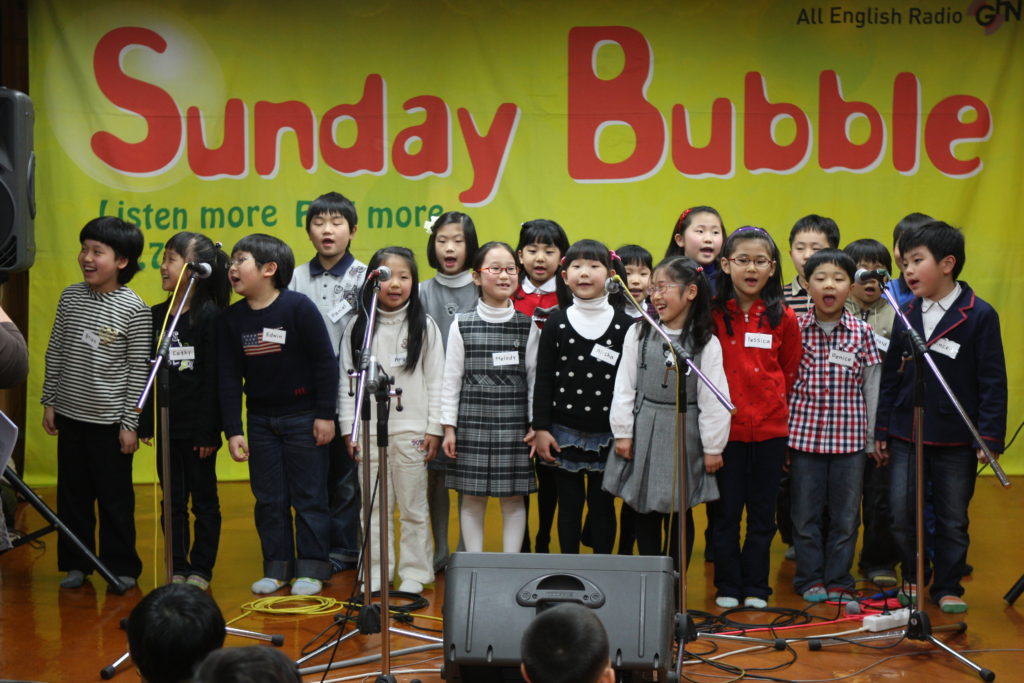
While the broadcasting began in English, along with some obligatory Korean language as well, over the years, programming in other languages has also been added to the station’s repertoire. After all, it is the Gwangju Foreign Language Network, not just English. In October 2013, GFN began to broadcast programming in Chinese, and in March 2017, Vietnamese programming was added as well. To those surprised that we offer programming in these languages, it should be pointed out that native Chinese and Vietnamese speakers outnumber native English speakers in Gwangju. In addition to adding different languages to its programming, GFN has extended its range of broadcast. In October 2011, broadcasting was extended to Yeosu. For special occasions, such as the 2015 Gwangju Universiade, GFN has broadcast nationally.
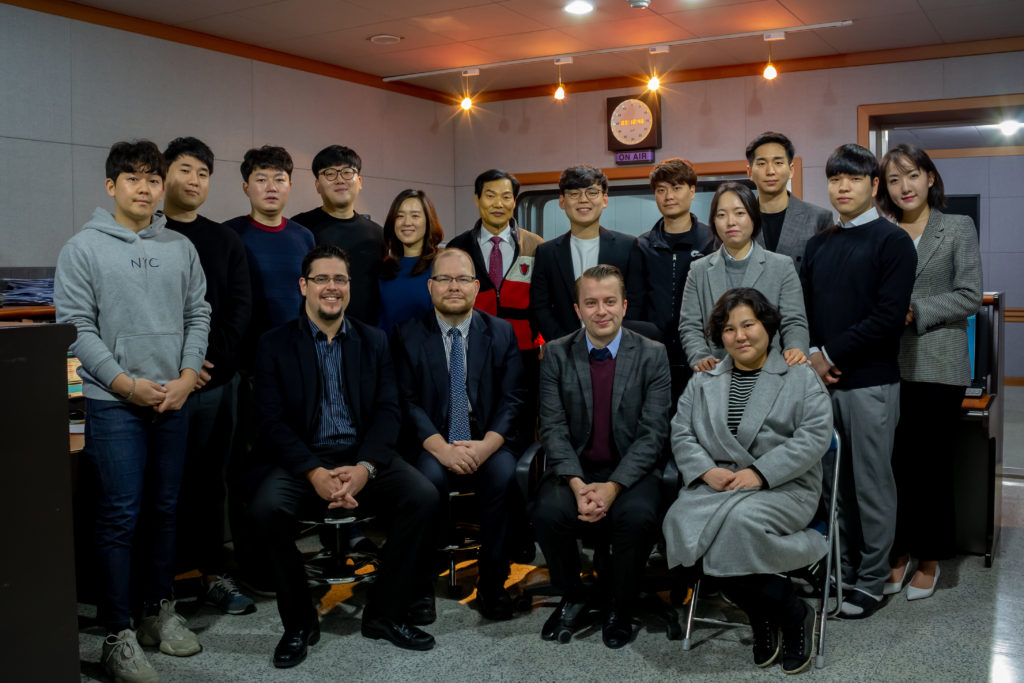
Beyond just radio programming, GFN was also involved with community events from the beginning. In January of 2010, the GFN Choir was founded. In November the same year, GFN held the first Gwangju Youth Debating Championship, and in the following month, the first Gwangju Junior English Interpreters Competition. All of these programs followed GFN’s mandate of providing English services to the public, in these cases by engaging with youth through education and culture. Another consistently popular event has been GFN’s Amazing Race, a culture-themed scavenger hunt held at festival locations in Jeollanamdo. A foreigner K-Pop singing contest is another favorite.
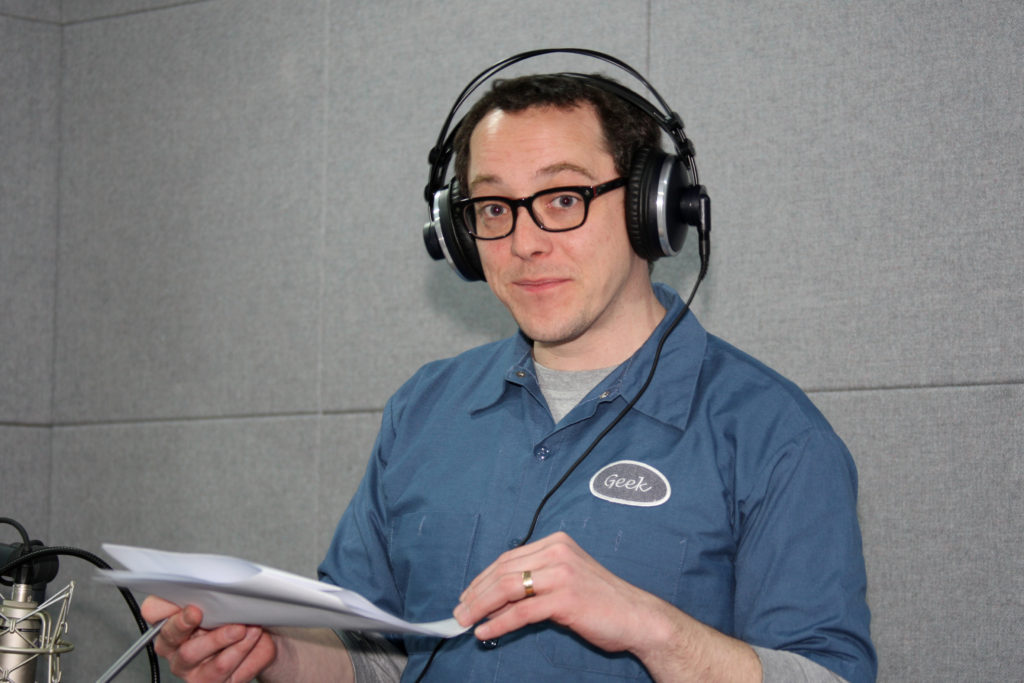
Of the original Korean staff, only four remain. Just one of the original foreign hosts is still on air at GFN. We wish more were with us, but time is not always kind. When one of the original hosts, Michael Simning, was diagnosed with leukemia, GFN held a national blood drive to bring in the donations he required. When that host passed away, a hole was left, a hole I was asked to try to help fill. That was five years ago. In that time, I have had the privilege to work with an incredible group of talented and hardworking professionals whom I call colleagues and friends. I have avoided giving names in this article with two obvious exceptions because too many good people have worked and do work at GFN to name them all.
I hope you have enjoyed our waves. We’ll keep making them.
Photographs courtesy of GFN
The Author
Arlo Matisz is the host of GFN’s City of Light as well as an economics professor. Gwangju is his inspiration and home.





